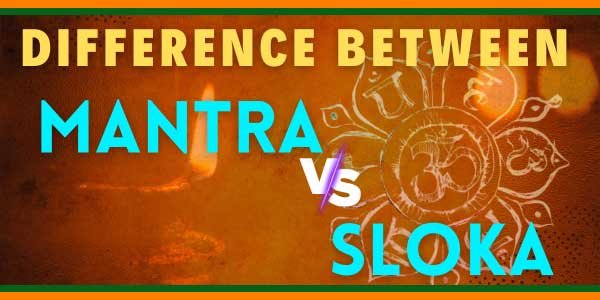Slokas and mantras are verses used in Hinduism for prayers and spiritual purposes. As a Hindu, you might know that Om is a small mantra used for meditation, bringing relaxation and inner calmness. There are various other mantras like the Gayatri Mantra, Mahamritunjaya Mantra, and the Hare Krishna Mantra, recited daily for stress relief. Slokas are also similar to mantras, causing confusion for those unfamiliar with Hindu customs. This article attempts to clarify the differences between mantras and slokas, helping those interested in using these ancient practices for inner peace and tranquility.

Mantra:
A mantra is a special sound or a short/long verse that is recited in a specific way. It’s used to please deities or find inner peace. Mantras come from ancient Hindu scriptures like Vedas and Agamas. They’re in Sanskrit and can’t be translated or mispronounced, as their spiritual effect might be lost. Even non-Hindus can chant these mantras for the same believed effects. Chanting or mantra japa is a key part of Hindu worship. Repeating a mantra a certain number of times is considered lucky, like 21, 51, or 108, to get desired results or benefits.
Sloka / Slokam:
A sloka is a word rooted in Sanskrit that means a song. These Slokams were created by poet Valmiki, who used them to describe events, and he also wrote the Hindu epic Ramayana. Slokas aren’t as old as mantras and originate from secondary scriptures like Vishnu Purana or Adi Strotam by Adi Shankaracharya. To get the intended benefits, reciting a sloka requires understanding its meaning.
What sets apart Mantras from Slokas?

